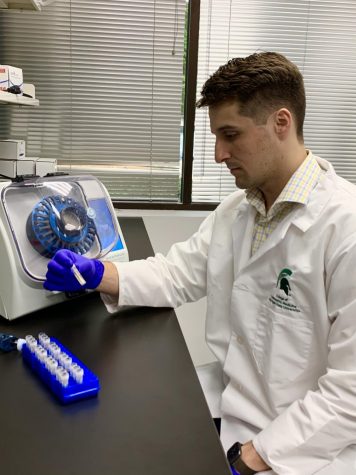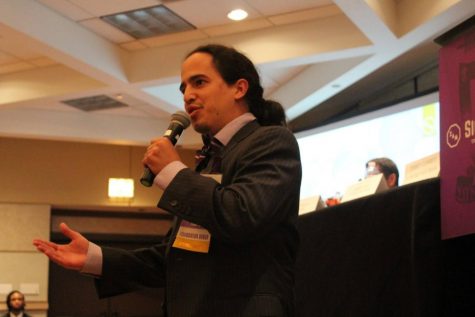The Sci-Files – 06/14/2020 – Zachary Morehouse – Shaking Up Virus Detection
June 15, 2020

On this week’s The Sci-Files, your hosts Chelsie and Danny interview Zachary Morehouse. Zach is a 3rd-year osteopathic medical student at Michigan State’s College of Osteopathic Medicine. When the COVID-19 pandemic hit, Zach was looking for a way to use his background in molecular virology and drug development, in conjunction with the knowledge he has gained from medical school thus far, to do his part in the fight against this disease. In mid-March, he received a call from one of his former research colleagues and mentor, Dr. Rodney Nash in Atlanta, GA asking if he could come down to help develop some viral testing procedures for a biotechnology company called Omni International Inc. Since classes had moved online and Zach was entering into his dedicated boards self-study period, he jumped at the chance to put his skills to use in the lab again. Over the last 11 weeks, Zach and the laboratory team at Omni International have worked every day, long hours, nights, and weekends to develop viral extraction and detection protocols using the laboratory equipment that Omni already manufactured. Using one of the company’s most popular devices, the Omni Bead Ruptor Elite, they developed extraction methods to pull viral RNA out of feces, wastewater, tissue culture media, and off swabs to be used in downstream PCR based applications that confirm the presence of the virus. As COVID-19 continued to expand, basic laboratory supplies, such as the standard reagents used in nucleic acid extractions and the laboratory plastics needed to conduct those extractions became increasingly difficult to find, given the exponential increase in demand. This resource scarcity caused Zach and the team to come up with the now patented, two-step direct-to-PCR methodology. This method allows for the complete bypass of the standard extraction methods used in PCR based assays for viral detection off swabs, reducing the cost and time associated with the processing of each sample. While this technology has been proven in vitro with human coronavirus 229E, the group is currently working with their clinical collaborators to validate the method on COVID-19 patient samples. Zachary and Dr. Nash are hopeful that this novel technology will provide relief to resource challenged health care environments with its potential to reduce the cost of testing, and improve turn around time on each sample being processed. If you want to reach out for more information or potential collaboration, please contact Zach at moreho17@msu.edu.
If you’re interested in talking about your MSU research on the radio or nominating a student, please email Chelsie and Danny at scifiles@impact89fm.org. You can ask questions about future episodes here. Check The Sci-Files out on Twitter, Facebook, Instagram, and YouTube! You can find the transcript to this episode here.































